| 2005 |

|
YEAR BOOK |
|
Irish National Accreditation Board
|
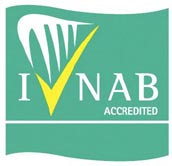
Confidence in the Marketplace
As consumers and organisations are faced with a more complex and dynamic marketplace, the need for independent assurance grows. Consumers demand confidence in quality of the products they use, the environment they live in, construction materials, the reliability of health care services etc.
It is also important for businesses and regulators to have confidence in the integrity and quality of the services provided by laboratories, inspection and certification bodies. It is the independence and impartiality of accreditation that guarantee this confidence. Accreditation is an independent assessment of an organisation's competence to carry out a particular activity.
Benefits of Accreditation for:
|
Government
Accreditation is the preferred mechanism for ensuring public confidence in the reliability of activities that impact on health, welfare, security and the environment. Accreditation is used, therefore, to identify Competent Bodies for the implementation of government policies and regulations. |
|
Industry
Accreditation is an essential tool for decision making and risk management. Organisations can save time and money by selecting an accredited and therefore competent supplier. Accreditation can provide a competitive advantage and facilitates access to export markets within Europe and beyond � with the aim of "tested or certified once, accepted everywhere". Accurate measurements and tests carried out in compliance with best practices limit product failure, control manufacturing costs and foster innovation. |
|
Accredited Organisations
Accreditation is objective proof that organisations comply with best practices. It is the internationally recognised system that is used to develop and sustain high standards of performance. It is a winning formula for eligibility to tender for international projects. |
|
Consumer
Accreditation gives consumers confidence through ensuring consistently high standards in the quality of products or services purchased. |
New areas INAB is involved in:
-
�INAB has been appointed by the Environmental Protection Agency (EPA) to accredit Verifiers for the GHG Emissions Trading Directive which is being implemented in order to meet the reductions in the emissions of green house gases as agreed in the Kyoto Protocol.
-
�Food Certification: INAB has accredited Certification Bodies (CB) for certification to the British Retail Consortium-BRC, Global Food and Food Packaging, EUREPGAP � European Retailers Good Agricultural Practice Scheme for Fruit and Vegetables and, nationally, the Bord Bia and Bord Iascaigh Mhara schemes for food and fish at the farm and processor level. This accredited certification gives confidence to the consumer that the food we eat is safe from farm to fork.
-
�INAB has also begun to accredit hospital laboratories to the new medical laboratory standard ISO 15189 which is based
on ISO 17025. It is specifically for medical laboratories and takes into account the particular requirements imposed by
the medical environment and also addresses the critical contribution of the medical laboratory service to patient
care.
-
�Accreditation is increasingly being used as the mechanism for ensuring competence in the implementation of European Directives. In particular under the Emission of Volatile Organic Compounds from Organic Solvents Directive, any installation which emits organic solvents, such as dry cleaners, will be required to have an annual inspection carried out by an Accredited Inspection Contractor (AIC) in order to be registered by their local authority.
For further information contact: Irish National Accreditation Board, Wilton Park House,Wilton Place, Dublin 2; Tel: (01) 607 3003; E-mail: [email protected] ; Web: www.inab.ie

|
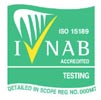
|
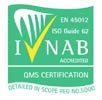
|
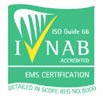
|

|
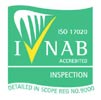
|
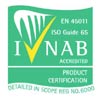
|